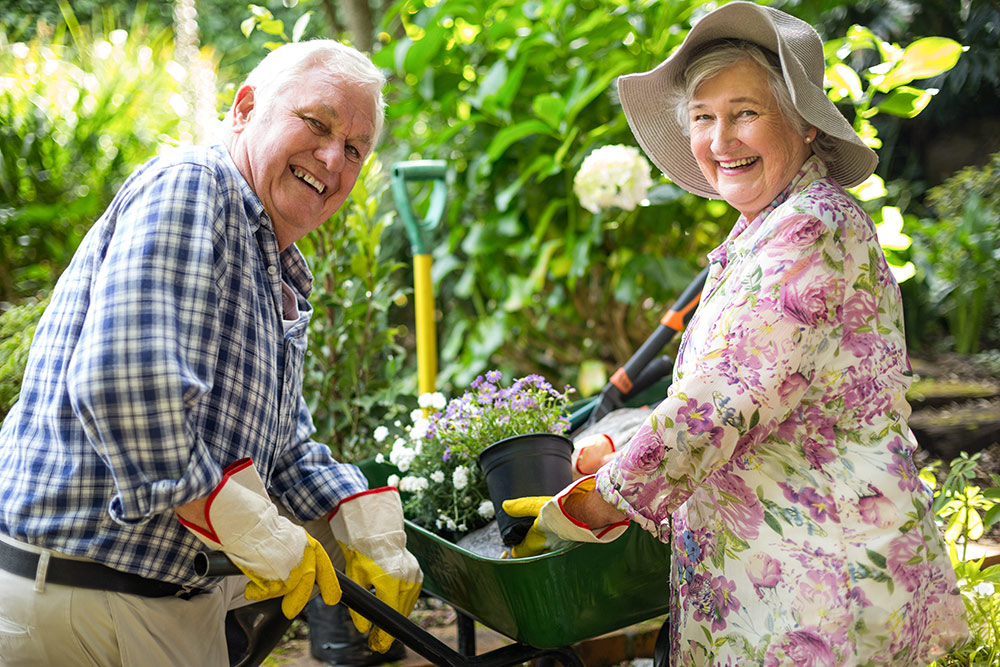Benefits of Gardening for Seniors
Improved Physical Health
Gardening offers numerous benefits for seniors, particularly in terms of physical health. Engaging in gardening activities requires various physical movements such as bending, stretching, and lifting, which help seniors improve their strength, flexibility, and overall fitness. These activities also contribute to better cardiovascular health, as they provide a low-impact form of exercise. Additionally, exposure to sunlight during gardening can stimulate the production of vitamin D, which is essential for maintaining healthy bones and preventing conditions like osteoporosis.
Mental Well-being and Cognitive Function
Gardening has proven to be highly beneficial for the mental well-being of seniors. It provides a sense of purpose and accomplishment, boosting self-esteem and overall happiness. The act of nurturing plants and watching them grow can be incredibly rewarding, leading to reduced stress levels and improved mental health. Moreover, gardening has been linked to enhanced cognitive function, including improved memory and concentration skills. The combination of physical activity, mental stimulation, and exposure to nature helps seniors maintain a sharp mind and prevent cognitive decline.
Social Interaction and Emotional Support
One of the often overlooked benefits of gardening for seniors is the opportunity for social interaction and emotional support. Gardening can be a communal activity, allowing seniors to connect with other gardening enthusiasts, neighbors, or even family members. This social interaction helps combat feelings of loneliness and isolation, which are common among seniors. Sharing gardening tips, exchanging plant cuttings, or simply enjoying conversations while tending to the garden can foster a sense of belonging and create valuable friendships.
Stress Reduction and Therapeutic Effects
Gardening serves as a natural stress reliever and offers therapeutic effects for seniors. Spending time in nature and engaging in gardening activities has been shown to reduce cortisol levels, a hormone associated with stress. The peaceful and serene environment of a garden provides a calming effect, promoting relaxation and improving overall mental well-being. The repetitive tasks involved in gardening, such as weeding or watering, can also have a meditative quality, allowing seniors to focus their minds and find inner peace.
Increased Nutritional Intake
Seniors who engage in gardening often have access to fresh, homegrown produce, which can significantly improve their nutritional intake. Growing fruits, vegetables, and herbs in the garden ensure a constant supply of fresh and organic food options. This can be particularly beneficial for seniors who may have dietary restrictions or limited access to grocery stores. Consuming a diet rich in homegrown produce provides essential vitamins, minerals, and antioxidants, promoting overall health and well-being.

In conclusion, gardening offers a wide range of benefits for seniors. It improves physical health, enhances mental well-being and cognitive function, provides social interaction and emotional support, reduces stress, and offers therapeutic effects. Additionally, gardening allows seniors to increase their nutritional intake by growing their fresh produce. By engaging in gardening activities, seniors can lead a more fulfilling and healthy lifestyle. So, grab your gardening tools and start reaping the numerous rewards that gardening has to offer!
Frequently Asked Questions about the Benefits of Gardening for Seniors
1. How does gardening benefit seniors?
Gardening provides physical exercise, promotes mental well-being, reduces stress, improves cognitive function, and offers a sense of accomplishment.
2. Can gardening help improve senior’s physical health?
Absolutely! Gardening involves various physical activities like digging, planting, and weeding, which enhance strength, flexibility, and cardiovascular health.
3. Does gardening have any psychological benefits for seniors?
Yes, gardening can uplift mood, reduce symptoms of depression and anxiety, improve self-esteem, and provide a sense of purpose and fulfillment.
4. How does gardening contribute to cognitive function in seniors?
Gardening requires problem-solving, memory recall, and attention to detail, which stimulate the brain and help maintain cognitive abilities in seniors.
5. Can gardening help seniors socialize and combat loneliness?
Absolutely! Gardening can be a social activity that fosters connections with other gardeners, neighbors, or community members, reducing feelings of isolation and loneliness.
6. Are there any therapeutic benefits of gardening for seniors?
Yes, gardening has therapeutic effects as it promotes relaxation, reduces stress, improves mood, and can even be used as a form of horticultural therapy for seniors with specific health conditions.
7. Can gardening provide a sense of accomplishment for seniors?
Definitely! Watching plants grow, nurturing them, and enjoying the beauty of a well-maintained garden gives seniors a sense of achievement and pride.
8. Does gardening help improve sleep patterns in seniors?
Yes, spending time outdoors and engaging in physical activity while gardening can regulate sleep patterns, leading to better quality sleep for seniors.
9. Can gardening stimulate the senses of seniors?
Absolutely! Gardening engages all the senses the sight of colorful flowers, the smell of fresh earth, the touch of leaves, the sound of birds, and the taste of homegrown produce.
10. Are there any additional benefits of gardening for seniors?
Yes, gardening can provide learning opportunities, increase vitamin D levels through sun exposure, and even improve the overall quality of life for seniors.




